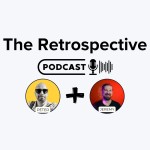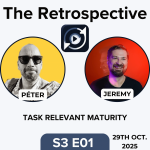
S3:E04 - Letting Someone Go
In this episode of the ‘Retrospective’ podcast, we tackle one of the toughest challenges in engineering leadership: letting someone go. We begin by discussing the emotional weight and impact of termination, emphasizing that it’s one of the hardest tasks a manager faces. We outline a three-part structure: making the decision, having the conversation, and managing the aftermath. Key points include the importance of early feedback, structured performance improvement plans (PIPs), and maintaining empathy throughout the process. We also touch on the role of HR and the necessity of transparent communication with the remaining team. This episode aims to provide practical advice to help managers handle terminations effectively and humanely.



